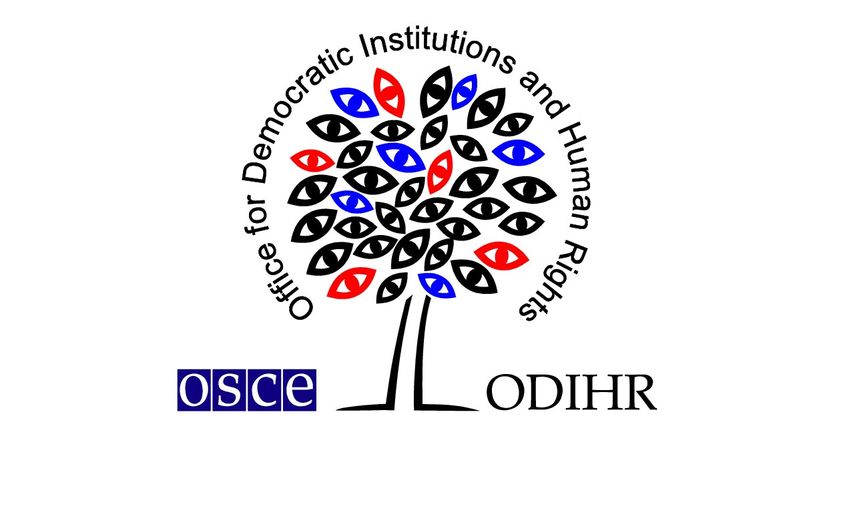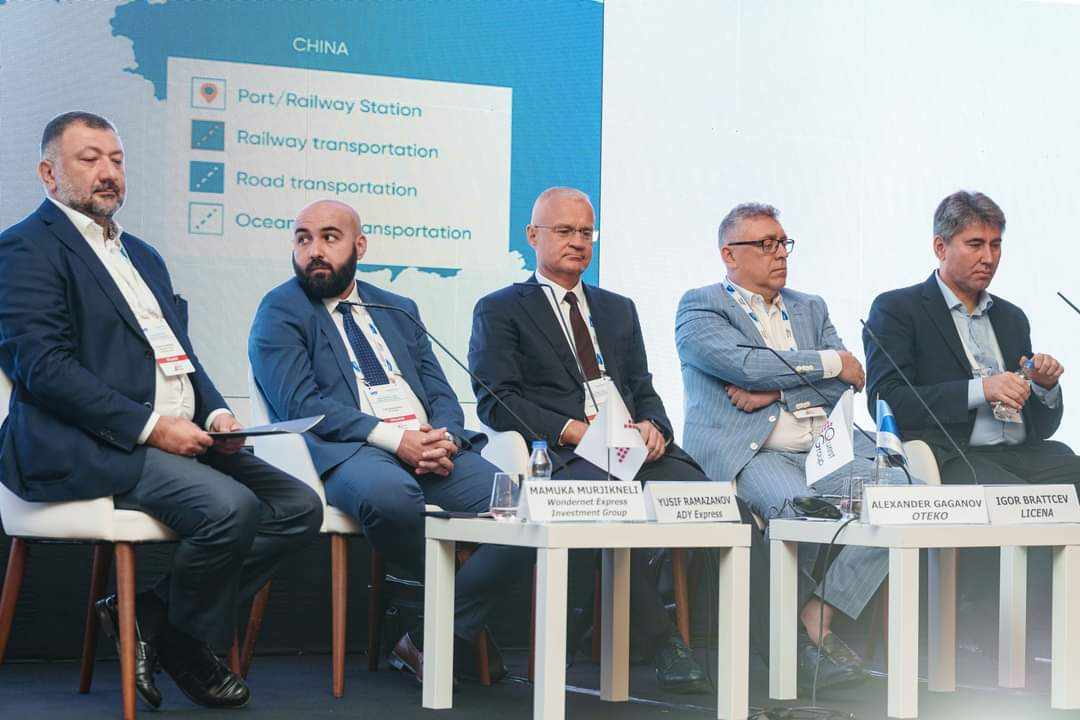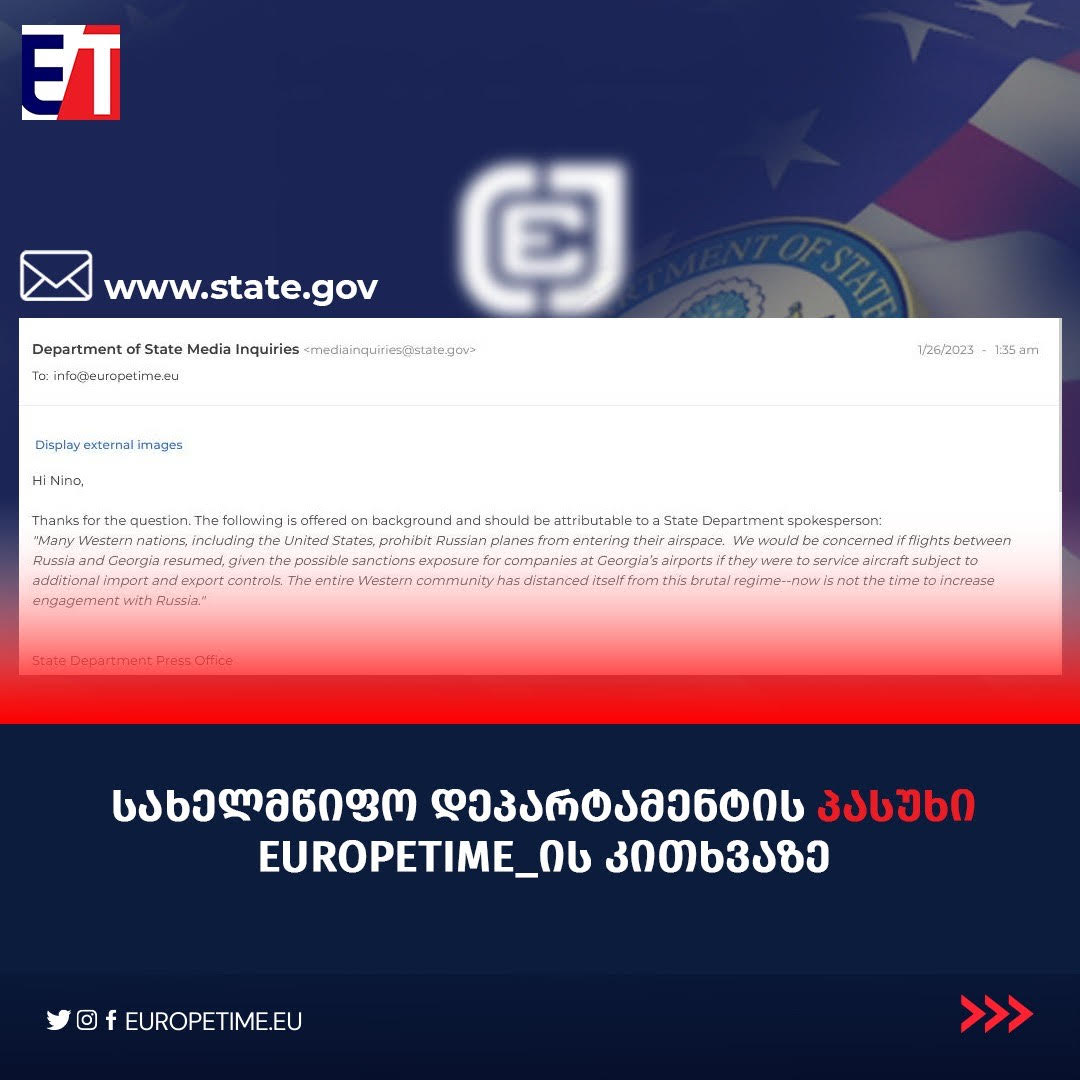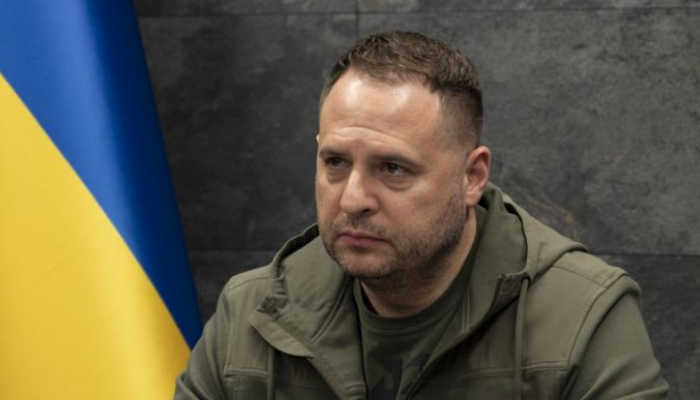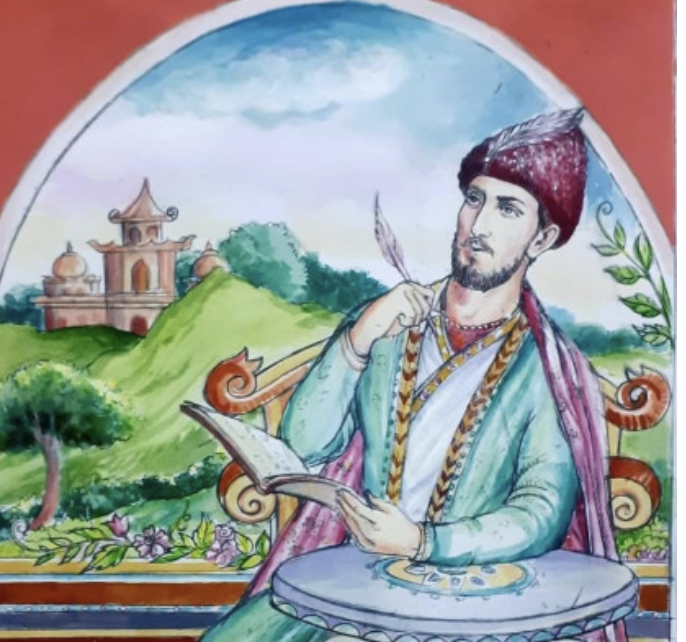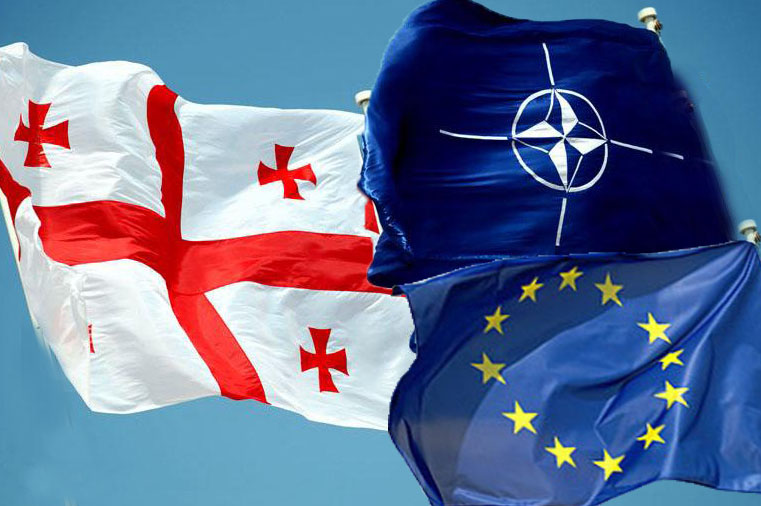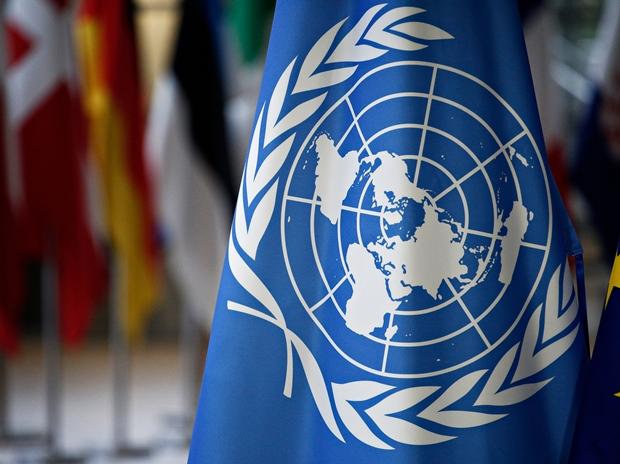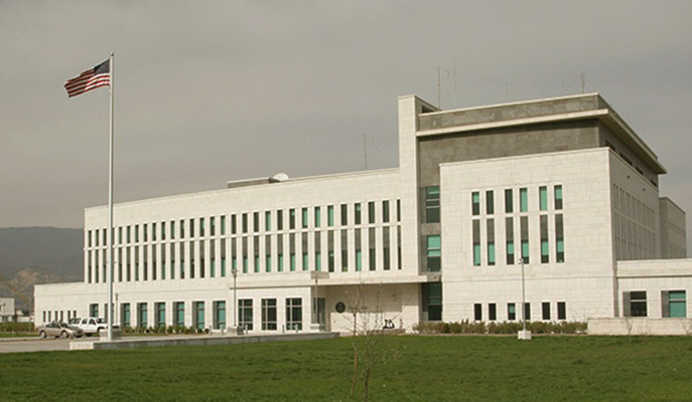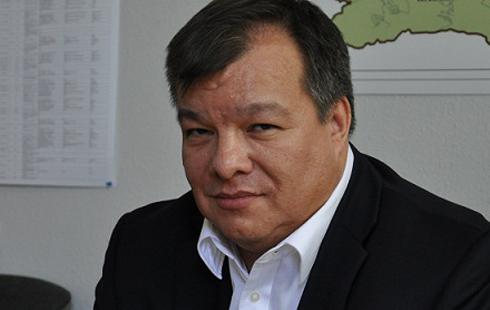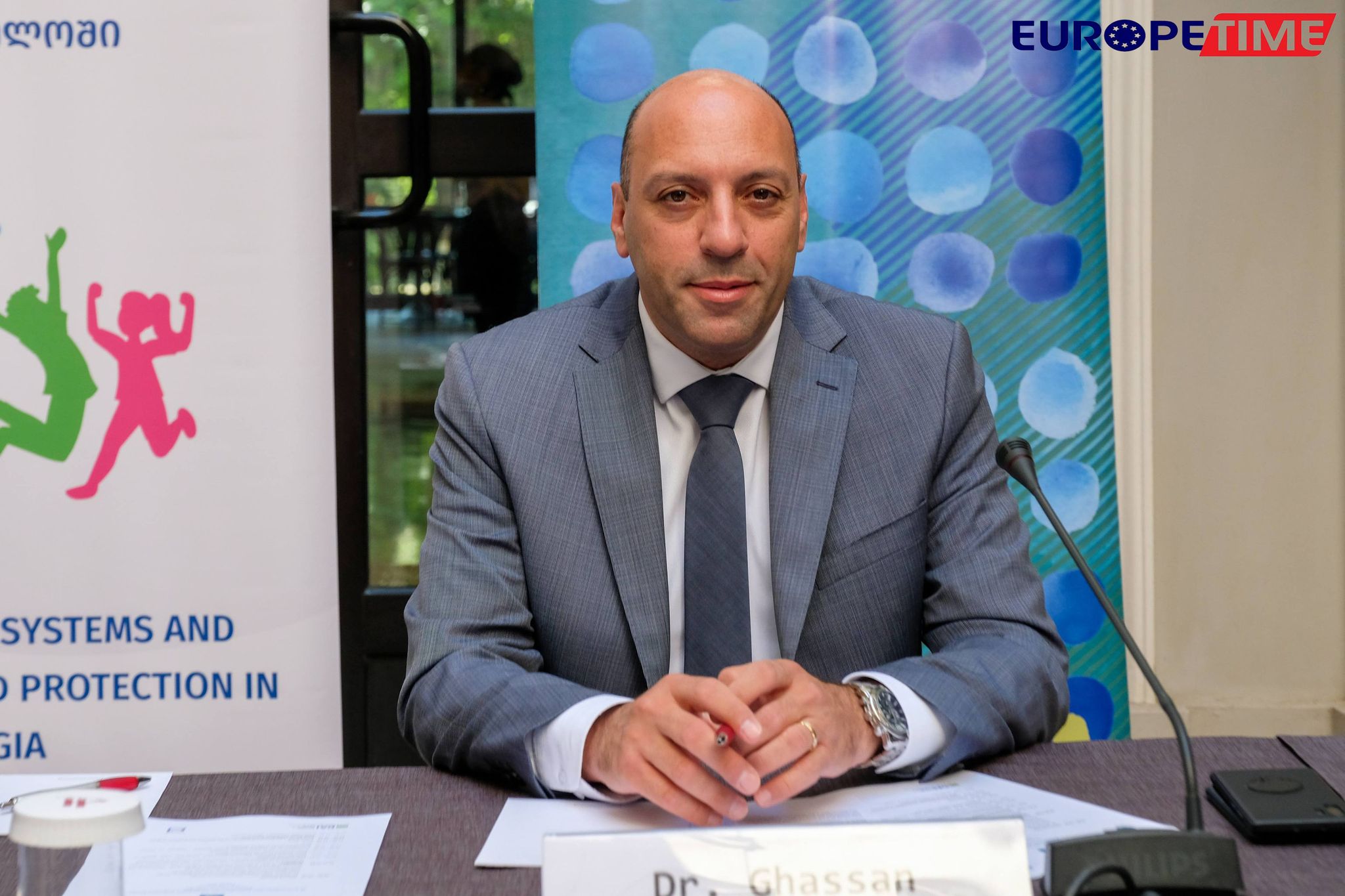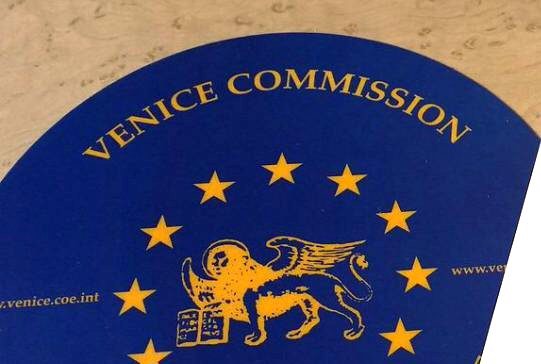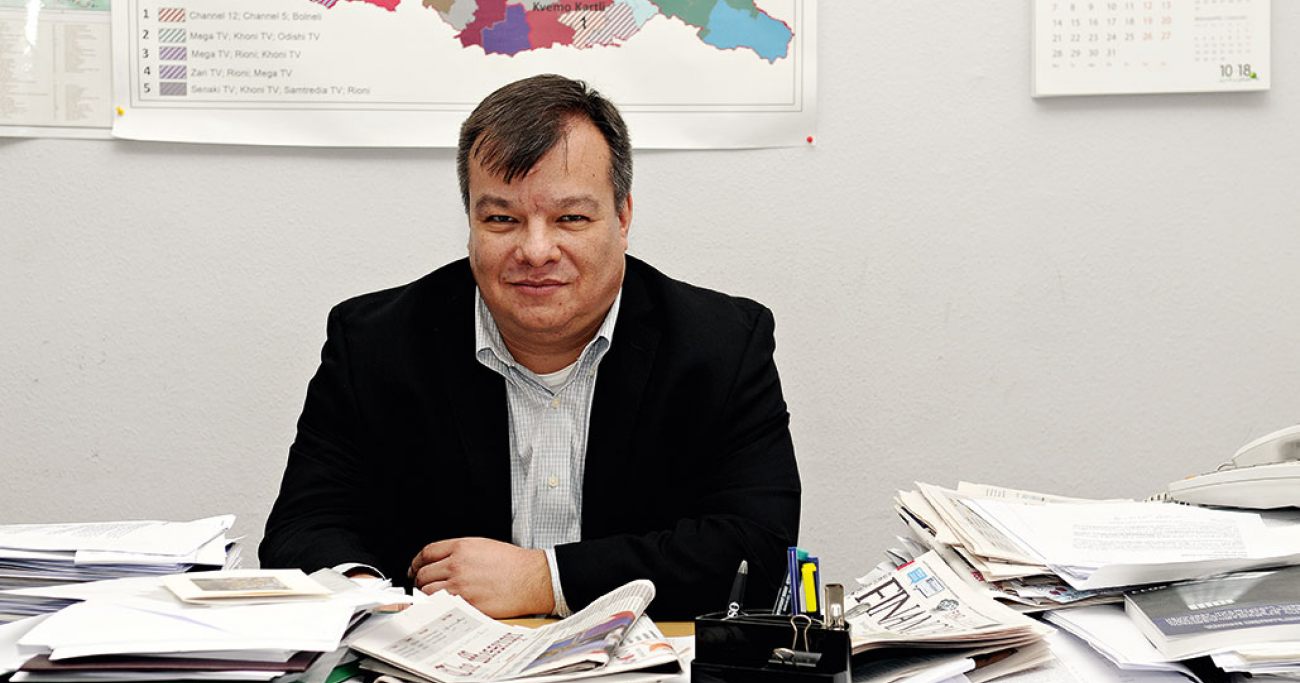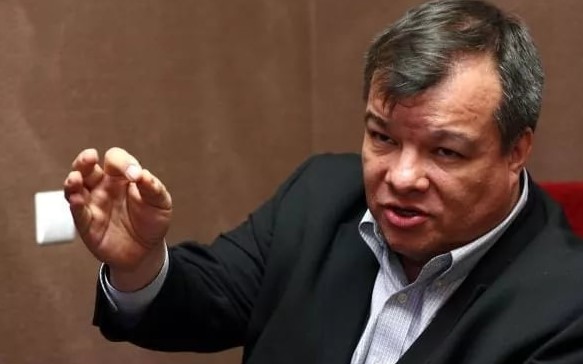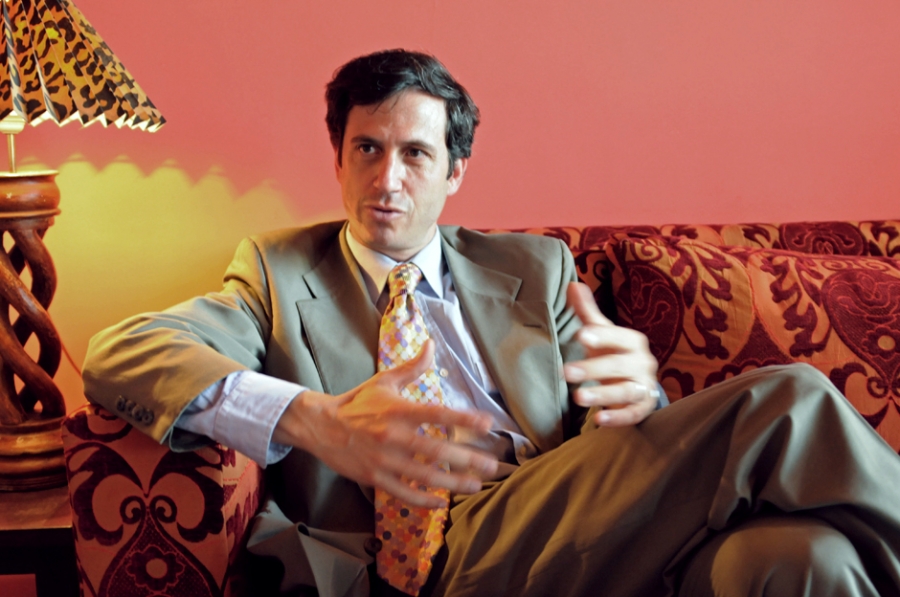Society
Ombudsman Shares Negative Evaluation by ODIHR on ‘Foreign Agents’ Laws
The OSCE Office for Democratic Institutions and Human Rights (ODIHR) has produced a legal report concerning the “Foreign Agents” draft laws introduced in the Georgian Parliament in February 2023. The report was prepared in response to requests submitted by the Public Defender on February 24 and March 6. The assessment of these initiatives by ODIHR was negative, according to a statement from the Ombudsman issued on August 9. The Ombudsman’s statement notes that following large social protests, the deliberation of the aforementioned draft laws within the Georgian Parliament was halted. Specifically, one of the draft laws was withdrawn, while the other was discarded during the second reading. Despite these developments, and due to the significance of the matter at hand, OSCE/ODIHR continued to analyze the issue and presented an extensive overview of human rights standards along with associated recommendations. The document primarily concentrates on the adverse impacts of the draft laws on fundamental human rights. These rights include freedom of association, freedom of expression, the right to privacy, participation in public affairs, and protection from discrimination. “The Note also reviews the US and Australian legislations. It is emphasized that they are fundamentally different cases, have an entirely different goal and scale, which is why they do not represent relevant comparative examples in the Georgian context,” – reads the statement by the Public Defender of Georgia. OSCE/ODIHR’s Legal Note on “Foreign Agents” Draft-Laws The “Note on Legislative Initiatives on Transparency and Regulation of Associations Funded from Abroad or so-called ‘Foreign Agents Laws’ and Similar Legislation and their Compliance with International Human Rights Standards” opens by highlighting that the fundamental right to freedom of association is integral to a vibrant and participatory democracy and is intertwined with various human rights. Essential to this right is access to diverse funding sources, including international and foreign funding. Nevertheless, it points out that certain nations regard foreign funding with suspicion. The Notes notes that “overall, the aim of so-called “foreign agents laws” or similar legislation is generally to seek to increase the scrutiny of such funding and of the activities of the recipient associations by introducing new obligations for such associations such as separate and generally burdensome registration, labelling, reporting, accounting and publication/disclosure requirements”, etc. The Note stresses that these regulations often fall short of meeting the rigorous criteria established by international human rights law. These criteria dictate that constraints on freedom of association must be lawful, pursue legitimate objectives, demonstrate proportionality and necessity within a democratic society, and refrain from discrimination. Additionally, the Note draws upon comparative viewpoints, regional legal precedents, and authoritative recommendations to offer supplementary insight on this issue. The assessment finds that the rationale for implementing legislative initiatives related to “foreign agents” laws often lacks evidence of a tangible, current, or serious threat to national interests or democracy. Adequate risk-based evaluations of the civil society sector, confirming NGO involvement in criminal activities, are frequently absent. Moreover, national justifications for such legislative initiatives typically fall short of being “relevant and sufficient.” They fail to demonstrate insufficiencies in existing legal frameworks and the appropriateness of proposed measures. “An abstract assumption that all funds originating from abroad constitute a potential threat to national interests is incompatible with international human rights standards,” – reads the Note. It is also noted that lack of proper reasoning for differential treatment based on funding’s foreign origin suggests potential discrimination. Regulations on associations are often stricter than those on business entities, without clear explanations. In addition, the report highlights that “the legal drafters usually fail to show that they have assessed the potential negative impact of a legislation on associations or considered other legal alternatives and selected the least intrusive measures with regard to the protection of fundamental rights,” adding that aiming for “transparency” or “publicity” of association funding isn’t inherently a legitimate aim, though it could be under specific circumstances related to public order or preventing crimes. The Note emphasizes that objectives like countering money laundering or terrorism financing don’t automatically justify new reporting obligations for all associations. References to foreign laws like the United States Foreign Agents Registration Act (FARA) and Australian Foreign Influence Transparency Scheme Act (FITS) aren’t suitable comparisons for justifying initiatives targeting foreign-funded associations. The report also notes that “foreign agents” laws introduce control measures, such as unscheduled inspections without clear legal grounds or court authorization. In certain cases, these laws even impose fines, imprisonment, or association dissolution as consequences for violations that are seen as disproportionate. These laws frequently violate principles of equal treatment and non-discrimination, indirectly affecting associations that advocate minority viewpoints. In practical terms, “foreign agents” laws run the risk of discrediting valid organizations, fostering mistrust, fear, and hostility, thus complicating their operational activities.
Occupied Abkazia Transfers Bichvinta Dacha to Russia
Abkhazia's de facto parliament has ratified a controversial “agreement“ with Moscow under which a state resort in the breakaway Georgian territory will be transferred to Russia. The deal made in January 2022 calls for the Bichvinta country house to be handed over to Russia, leading to outcry from opposition groups who have been protesting in front of the parliament building and on December 27 called the ratification of the “agreement“ "shameful." The de -facto President of Abkhazia, Aslan Bzhania signed the ratification “document“ already, at 9 a.m. It was first decided in 1995 that Bichvinta would be transferred to Russia through a long-term lease, although no practical steps have been taken since then. Russia has stepped up its efforts to finalize the deal, with the text of a new “agreement“ to transfer the land for 49 years emerging on January 19, 2022, which was ratified today. The issue has been a hot topic of discussion in Abkhazia ever since, with both the public and officials divided on the matter. In May this year, young activists were arrested while protesting against the transfer.
The Argus Fertilizers 2023 Conference for Caspian, Black Sea, and Eastern European Markets was held in Istanbul with the financial support of Wondernet Express Investment Group
The Argus Fertilizers 2023 Conference for Caspian, Black Sea, and Eastern European Markets was held in Istanbul on September 14-15, with the financial support of Wondernet Express Investment Group. As part of the conference, Mamuka Murjikneli, the General Director & CEO of the company, participated in a panel discussion addressing changes in fertilizer trade flows in the regional markets and bulk cargo transshipment through Georgia. The annual Argus conference attracted up to 500 delegates from the fields of fertilizer production, logistics, and trade.
Australia legalises psychedelics for mental health
Australia has become the first country in the world to legalise the use of psychedelics to treat some mental health conditions. According to the BBC Approved psychiatrists can now prescribe MDMA to those suffering post-traumatic stress disorder and magic mushrooms for some types of depression. The controversial move has been hailed as a game-changer by many scientists and mental health experts. However, others say the move has been too hasty and should not be over-hyped. Experts say there is still the risk of a "bad trip", which is when the user has an unpleasant experience while under the influence of drugs. And the therapy comes at a cost, with Australian media reporting one course could cost tens of thousands of dollars. MDMA - also known as the party drug ecstasy - is a synthetic drug that acts as a hallucinogen. It increases the user's energy levels, sensory experiences and distorts their sense of time. Magic mushrooms, which grow naturally, also have hallucinogenic effects due to the active compound psilocybin. While Australia is the first country in the world to regulate the drugs as medications, clinical trials are also underway in the US, Canada and Israel. Under the new regulations which became official in Australia on 1 July, approved psychiatrists can prescribe MDMA for post-traumatic stress disorder (PTSD) and psilocybin for depression that has resisted other treatments. Use of the psychedelics would be carefully monitored and not a case of "take a pill and go away", said Dr Mike Musker, a mental health researcher at the University of South Australia. Describing the move as a "game-changer", he told AFP news agency that, in the case of MDMA for example, the patient would likely have three treatments over five to eight weeks. Each treatment would last about eight hours, with the therapist staying with the patient the whole time. Patients should not expect a miracle cure, however. "I have read about stories where people have had what you call bad trips, or actually they've re-experienced their trauma, and so we've got to take great caution," Dr Musker said. Professor Susan Rossell, a cognitive neuropsychologist at Melbourne's Swinburne University said that while psychedelics certainly had the potential for therapeutic use, the move had come about too quickly. "When you look at interventions... for any other kind of disease, whether it's cardiovascular disease or cancer, you cannot get a drug to market as quickly as this has been done," she told AFP. Prof Rossell, who is leading Australia's biggest trial on the effects of psilocybin on depression, added that more research was needed to determine the long-term outcomes of the therapy. Australia's Therapeutic Goods Administration (TGA) shocked many in the medical and science world in February when it reclassified MDMA and psilocybin so they could be used for therapeutic purposes. It declared the drugs "relatively safe" when used in a "medically-controlled environment" for patients "with serious mental health conditions". Otherwise, both MDMA and psilocybin are illegal in Australia. The TGA acknowledges that there are unknowns and inconclusive evidence, but says "there are promising signs" that controlled therapeutic use of the drugs may improve mental health for some people and that the "benefits for some patients... will outweigh the risks". The regulator says there are currently no approved products that contain MDMA or psilocybin. However the reclassification means psychiatrists will be able to access and legally supply certain medicines that contain them, even if they have not been evaluated for safety or effectiveness.
Statement of news agency Europetime
We are responding to the so-called study published by ‘Mediacritic’ according to which the material published by Europetime on the basis of the State Department is ‘fake’, only because it is a comment on behalf of the State Department and not with reference to a specific person. The author of ‘Mediacritic’ also claims that the materials (regarding the possible resumption of flights with Russia and the trial of ex-president Mikheil Saakashvili) is ‘fake’ only because the author of the material has not been identified. Publishing editorial material, as well as commenting, evaluating or making statements on behalf of various agencies is a common, proven method and has nothing to do with fake news. From the day it was founded, Europetime has always felt great responsibility before its readers and fully adhered to professional ethics. We have never released any material, interview or comments without verification. As for the answers we received from the State Department to our questions, we do have the material reflecting this in the official e-mail, so we are attaching the ‘screenshots’ to our statement. It is a pity that the material of ‘Mediacritic’ can be called a ‘study’, in which an independent media outlet can be blamed without any justification and be accused of something that contradicts its principles without appeal. If the author of the material really wished to establish the truth, he would not have called the statement we released ‘fake’ without appeal and argumentation, but at least before publishing his ‘study’, he could have contacted us at least once, as other media outlets have done, and we would have gladly provided all the facts confirming the objectivity of the material. We still hope that this ‘study’ does not serve as an attempt to discredit the free media. Editorial of Europetime
Andriy Yermak: I truly sympathize with our Georgian brothers. I thank all the soldiers fighting with us
Andriy Yermak, the head of the administration of the President of Ukraine, sympathizes with the Georgian brothers. He said that the Georgian fighters "fought for peace and freedom." „Our Ukrainian and Georgian soldiers of the 57th brigade were besieged by the enemy near Bakhmut in the last few days. It has become known that one Georgian commander was wounded and five Georgian soldiers died. They fought for peace, for freedom! Freedom unites the best people in the fight against autocratic evil! I truly sympathize with our Georgian brothers! And I also thank all the soldiers who are fight with us“. On December 3, five Georgian citizens, who fought as volunteers in the Armed Forces of Ukraine, were killed near Bakhmut.„Georgian volunteer fighters Avto Rurua, Roland Kvaratskhelia, Romeo Pichkhaya, Merab Aladashvili, and Badri Markelia were killed in the fight against the Russian invaders near Bakhmut on December 3. Eternal memory and glory to the heroes," the Embassy of Ukraine in Georgia posted on Facebook.As reported, Russia’s full-scale military aggression has been ongoing in Ukraine since February 24. The defense forces are fiercely resisting the Russian invaders.On December 3, 5 Georgian fighters were killed in Ukraine.Since Russia's full-scale invasion of Ukraine, 33 Georgian fighters have died.
Giviko Abdushelishvili: Patriotism is professionalism, you have to constantly strive to stand on the side of the right values
Unprecedented sanctions have been imposed on Russia’s economy, financial system, government and its allies over the attack on Ukraine by the European Union, the United States, the United Kingdom and other countries. At the same time, the world's leading companies have announced the termination of business relations with Russia. Georgia already went through the processes that are underway in Ukraine in the 2008 Georgia-Russia war, and still has to live in the conditions of creeping occupation. Not to mention the 20% of Georgia's territories that Russia has occupied so far. The activity and protest of young people against Russia and the desire to help Ukraine are exceptional, they openly voice their position from different universities and different platforms. Giviko Abdushelishvili studies in New York in high school. At the age of 16, he decided to contribute to helping Ukrainian citizens affected by Russian aggression. Thus, Georgian Giviko Abdushelishvili and Ukrainian Arseniy Nasikovskiy have decided to create a website and sell their own clothes, and donate the profits to the aid fund for the people of Ukariane. ‘Our mission is simple - we help Ukraine through selling our clothes and donating the profits. Each and every one of our items contains a #. We leverage social media to promote the message of peace. Both of us study in New York, in high school and we constantly experience worries and fears about the situation in Ukraine. Therefore, we have launched this project. Buy our clothing and help Ukraine’ says Giviko Andishelishvili. According to him, it is also very important to spread the message of truth and peace as it is an information war as well. The hashtag used by them allows the issue of Ukraine to be more visible and widespread. Giviko Abdushelishvili has also recorded a video address, where he talks about the current situation and ways to implement sanctions more effectively. ‘Multiple world leaders have already implemented further sanctions against the Russian Federation. However, as I mentioned in my Tweet, the Russian Federation might implement and legalize crypto-currency payments, which cannot be tracked upon all of the European and the American states. Mr. Boris Johnson, a UK diplomat and a representative has stated officially that the UK stands with Ukraine, so the UK have imposed sanctions on President Putin, Sergey Lavrov, 5 Russian banks, more a hundred companies and oligarchs at the heart of Putin’s regime and Belarus. President Duda of Poland has mentioned and I have mentioned in my tweet that Poland supports the express path of Ukraine joining the European Union. They want it to happen as fast as possible, however, it should still be noted with other European Union world leaders’. Giviko Abdushelishvili was born in Georgia to a family of diplomats. His grandfather Givi Abdushelishvili was the first ambassador of independent Georgia to Uzbekistan and one of the signatories of the Georgian Independence Act. He wants to get an American education and return to Georgia. As he mentions in his conversation with us, his desire is to help the country with his profession to develop and integrate with the West. On the question whether he is thinking of the career of a diplomat, he smiles. "It is too early to talk about it... The main thing is to be a good citizen, a good professional in your job, because professionalism is patriotism. There is a long way of studies ahead, but what’s most important is you have to constantly strive to stand on the side of the right ‘, says Giviko.
Ukraine closes its airspace
Due to the high risk of aviation security for civil aviation from 00.45 utc (2.45 Kyiv time), Ukraine’s Civil-Military Air Traffic Management System took urgent measures to close the airspace of Ukraine for civil airspace users. Ukrinform reports with reference to the website of the Ukrainian State Air Traffic Services Enterprise (UkSATSE). “Based on the urgent message of the Main Center for the Use of Airspace of Civil Aviation of the Russian Federation, due to the high risk of aviation safety for civil aviation from 00.45 utc (2.45 Kyiv time) of the Joint Civil-Military Air Traffic Management System of Ukraine on the use of Ukraine's airspace, in accordance with the requirements of the Air Code of Ukraine and the Regulations on the use of Ukrainian airspace, has taken urgent measures to close Ukraine's airspace to civilian airspace users,” the report says. The provision of air traffic services to civilian users of the airspace of Ukraine is suspended. UkSATSE will additionally inform about changes in the use of Ukraine's airspace.
"The Knight in the Panther’s Skin” translated in the Bengali language, was first published in Bangladesh
"The Knight in the Panther’s Skin” by the renowed Georgian poet Shota Rustaveli translated in the Bengali language, was first published in Bangladesh. Mr. Md. Taherul Islam (Taher) performed the translation of the poem, while the artist Mr Mahmudul Hasan illustrated the book and infused the picture as per the Bengali Subcontinental culture. In celebration of the 30th anniversary of the establishment of diplomatic relations between Georgia and the People’s Republic of Bangladesh, the initiative of the Embassy of Georgia in New Delhi, and valuable involvement of the Honorary Consulate of Georgia in Bangladesh, made possible the translation and publication of this great poetic work into Bengali language. We welcome the publication of “The Knight in the Panther’s Skin” in the old Bengali language whose greatness was phrased by the worldwide famous poet Rabindranath Tagore. As it is known Bengali is one of the world’s ten most distinct languages with its ancientness and beauty, for its wonderful writing and sound. It is spoken by more than 200 million people in Bangladesh, India’s states of West Bengal, Tripura and the Barak Valley region of the state of Assam. It is ranked seventh most common spoken languages in the world. The translation of “The Knight in the Panther’s Skin“ to the Bengali language is a significant event not only for the development of Rustvelology, but also for the humanity, reconciliation, peaceful coexistence and amity between the nations. The official presentation of the book is expected soon in Dhaka, Bangladesh. His Excellency Archil Dzuliashvili, non-resident Ambassador of Georgia in Bangladesh, alongside with the Honorary Consulate of Georgia in Bangladesh, Mr. Riad Mahmud, will introduce the book to the society and Government members of the People’s Republic of Bangladesh. The book will be distributed to the Bengali readers around the world which allow the Bengali people to get acquainted with the Georgian cultural heritage. The Embassy of Georgia to the People’s Republic of Bangladesh (with residence in New Delhi) expresses its sincere gratitude to the Honorary Consul of Georgia in Bangladesh, Mr. Riad Mahmud for his great contribution to the successful translation and eventual publication of the masterpiece of the Georgian literature", - said the embassy of Georgia in New Delhi.
NDI POLL: DETERIORATION OF THE ECONOMY AT THE FOREFRONT OF PEOPLE’S MINDS
Poll results released today by the National Democratic Institute (NDI or the Institute) and CRRC Georgia find that Georgians see insufficient progress on the top national issues of concern and think the situation regarding poverty, crime, territorial integrity, and education has gotten worse in the last 10 years. Public concerns are consistent across political affiliation, signaling opportunities for political parties to work together to address the common needs of Georgia’s citizens. New poll finds that a majority of Georgians do not think anyone - neither government or opposition parties - is acting in their best interest. Georgians also remain skeptical of the newly elected parliament’s willingness to address their concerns. More than half of the population (53 percent) does not believe parliament is passing legislation on issues that matter to them, while 52 percent do not believe an MP will take action if citizens tell him/her about problems in their district. Only a third believes that parliament regularly communicates with the public. “Economic insecurity remains a top priority for the Georgian public and provides a clear direction for Government and political parties to respond. A renewed focus on the issues of top concern is required across the political spectrum through Government, Parliament and local councils.” - says Alan Gillam, NDI Georgia Country Director - “The consistency of the public view on these issues should be seen as a call to action for political leaders who have lost the confidence of the public in representing their interests.” In light of extreme political polarization, Georgians are supportive of a wide cross-party collaboration. 80 percent agree that their favorite political party should cooperate with all other political parties in the parliament, even if the views of some parties might be unacceptable to them. This perception is consistent across political affiliation. A majority of Georgians believe that domestic actors are best placed to facilitate mediation between the opposition and the government. A plurality (34%) thinks Georgian political parties themselves would make best facilitators during negotiations, while 11 percent find the president as a suitable moderator. Eighteen percent would look to the international community, believing western partners are needed for negotiations. “The public clearly have stated that the political parties in Georgia need to work together to resolve these challenges. The need for economic recovery, exacerbated by the pandemic, remain fundamental challenges in the upcoming period and should focus the minds of Government and opposition alike.” - says Alan Gillam, NDI Georgia Country Director. Although living in a democratic state remains important for the majority (92 percent), only 39 percent believe Georgia meets this criteria. Further, a plurality of Georgians think Georgia is no longer a beacon of democracy (34 percent), while 25 percent says Georgia has never been a good example of democracy to begin with. Only 23 percent of citizens agree that Georgia is a good example of democracy for the neighboring states. Finally, as Covid-19 continues to dominate the lives of citizens across the world, Georgians praise the Government for doing a good job handling the Covid pandemic (50 percent). What remains alarming is the high level of vaccine hesitancy - 42 percent said they would not get vaccinated; 29 percent said they are already vaccinated, 25 percent said they intend to receive a vaccine. Among those who are hesitant, the main reasons are concerns about the quality of the vaccine (38 percent) and possible side effects for those with pre-existing health conditions (20 percent). 34 percent of vaccinated individuals say they will not get a booster, or are undecided about it. NDI surveys public opinion to help Georgian stakeholders diagnose and address issues of public concern by providing accurate, unbiased and statistically sound data. This poll aims to capture the most relevant information to foster the development of responsive policies and governance. The results reflect data collected between December 7-13, 2021, through telephone interviews with a nationwide representative sample of Georgia’s adult population, excluding occupied territories, that included 2,099 completed interviews. The average margin of error is +/- 1.4 percent. Respondents were selected using the random-digit-dial method. This poll was carried out by CRRC Georgia. NDI’s survey work is funded by UK aid from the British
83% of respondents approve Georgia’s goal to join EU, 77% support joining NATO, NDI says
The majority of the population still actively support joining the European Union and NATO, according to a poll published today by the National Democratic Institute and CRRC-Georgia. 83% said they approved, 8% said they disapproved, while 3% did not know. According to the poll, citizens agree that EU membership is important, regardless of political views, and they support NATO membership. To the question - Do you approve the Georgian government’s stated goal to join NATO? – 77% said they approved, 11% said they disapproved, while 12% did not know. The results reflect data collected between December 7-13, 2021, through telephone interviews with a nationwide representative sample of Georgia’s adult population, excluding occupied territories, that included 2,099 completed interviews. The average margin of error is +/- 1.4 percent. Respondents were selected using the random-digit-dial method. This poll was carried out by CRRC Georgia.
Georgia failed to protect woman from gender-and honour-based violence, UN women’s rights committee finds
Georgia’s failure to investigate and prosecute gender and honor-based violence against a woman, who was severely beaten by family members in front of her young children, contributed to her death, the UN women’s rights committee has found. In the Views published today, the Committee on the Elimination of Discrimination against Women (CEDAW) deplored both the failure of the Georgian authorities to arrest and prosecute family members who had beaten the victim, Khanum Jeiranova, senseless and their decision to return her to her relatives. She was subsequently found dead. The Committee issued its findings after considering a complaint filed by Jeiranova’s two children, who were 11 and 7 when their mother died. Jeiranova, an ethnic Azerbaijani and a Georgian national was accused of having an extramarital affair by her husband’s relatives. On 16 September 2014, three of her husband’s relatives rounded on her, dragged her along the village, beating her so hard that she lost consciousness several times. That night, the village governor and police officers were called to the victim’s father's house where they saw her crying and begging for help as her family members wanted her to take a jar of rat poison. They didn’t make any arrests and didn’t send her to the hospital. The village governor took her away for the night but returned her to her mother the next morning. One day later, Jeiranova’s mother found her dead, her body hanging by a rope in the garden shed. The mullahs who prepared Jeiranova’s body said that her clothes were covered in blood and that her body had been “beaten to a pulp”, according to a witness statement. However, the police did not conduct a forensic examination of the location after the family refused to allow it. An investigation was opened but quickly closed, the prosecutors concluded that the victim had committed suicide as a result of her, what they described as, "shameful" and “dishonorable” behavior. “Ms. Jeiranova was a victim of intersecting discrimination related to ethnicity and stereotypical attitudes of the police and judicial authorities,” said Committee member Genoveva Tisheva. “Had the Georgian authorities adequately protected Ms. Jeiranova against the gender-based violence inflicted on her, she would still be alive today,” she added. The Committee found that Georgia had failed to provide effective protection and had not taken all appropriate measures to eliminate discrimination against Jeiranova. It also concluded that Georgia had violated its obligation to investigate and punish those responsible for the assault on the victim and her death. The Committee urged Georgia to conduct a prompt, thorough, and independent investigation into Jeiranova’s death and to prosecute those responsibly. It requested Georgia to provide appropriate reparation, including adequate compensation, as well as an official apology to Ms. Jeiranova’s children. It urged George to ensure that all legislation, policies, and measures that address domestic violence also include honor-based violence. In addition, it asked the State party to strengthen measures to ensure the right to life of women and their freedom from torture, with special attention to communities that are isolated, closed, and where honor-based norms apply.
Secretary of Defense Lloyd J. Austin III: It is not possible to replace Colin Powell, the world lost one of the greatest leaders, he's been my mentor for a number of years
Secretary of Defense Lloyd J. Austin III said that It is not possible to replace Colin Powell, the world lost one of the greatest leaders. I was informed earlier about the loss of Colin Powell, and I want to take just a second to express my deepest condolences to Alma, his wife, to his son Michael, and the entire Powell family. The world lost one of the greatest leaders that we have ever witnessed. Alma lost a great husband, and the family lost a tremendous father, and I lost a tremendous personal friend and mentor. He's been my mentor for a number of years. He always made time for me, and I could always go to him with tough issues, and he always had great counsel. We will certainly miss him. I feel as if I have a hole in my heart just learning this. The first African American Chairman of Joint Chiefs, the first African American Secretary of State, a man who was respected around the globe and quite frankly, it is not possible to replace Colin Powell. We will miss him. Again, my thoughts and prayers go out to the family ... I am deeply, deeply sad hearing this“, - Secretary of Defense, Lloyd Austin said. Colin Powell, an accomplished and esteemed four-star general who became the first African American secretary of State, died Monday as a result of complications from Covid-19, according to his family. He was 84.
U.S. Embassy statement on the death of journalist Lekso Lashkarava
The U.S. Embassy in Tbilisi extends our deepest condolences to the family of Lekso Lashkarava, particularly to Lekso’s mother, and to his colleagues at TV Pirveli and all those who are shocked and saddened by his death. Lekso worked behind the camera so despite his years of service as a media professional, many might not have recognized him before he was viciously attacked by people who demonstrated a complete lack of respect for human life. His bravery as he defended his colleague and his commitment to the fundamental freedoms long cherished in this country represent the best qualities and traditions of the people of Georgia. The arrest of several individuals in connection with the attack on Lekso is a positive first step toward justice. The safety of every Georgian journalist and the credibility of democracy in Georgia require that every individual who attacked peaceful citizens and journalists on July 5 and 6, or who incited violence, must be identified, arrested, and prosecuted to the full extent of the law. We call for calm and an end to the violence that has already caused one tragic loss of life.
Luis Navarro: The freedoms of assembly, speech, and press, and their application to all citizens are among the essential foundations of true democracies
The freedoms of assembly, speech, and press, and their application to all citizens are among the essential foundations of true democracies said Eurasian Program Fellow for the Foreign Policy Research Institute, Luis Navarro in a comment with Europetime. `The freedoms of assembly, speech, and press, and their application to all citizens are among the essential foundations of true democracies. In its statements and actions, the government has repeatedly, since it has been in power, made clear that if the LGBTQ community, and any allied with its exercise of these rights, do so at their own risk. Now that appears to apply to those who have the right to observe the exercise of these rights, as well. This stands in stark contrast to events like the xenophobic Georgian March in 2017, which also involved priests, and the government shrugged off as the price of freedom. The failure of this government to provide the level of security necessary to meet the violence promulgated by those the Orthodox Church claims not to condone is inexcusable. This failure is not only worse than May 17th, 2013, but it also reflects the failure to deter the mob violence organized by Levan Vasadze in 2019 and threatened in advance of yesterday. Given the government security forces used in the club raids of 2018, the anti-Putin protests in 2019, and even the arrest of Nika Melia earlier this year, it is clear that the government views the human rights of its citizens as conditional to their political views. All of this undermines the government’s claim to support European integration, rather than the anti-Democratic, pro-Russian narratives of those like Viktor Orban`, - said Luis Navarro Tbilisi Pride canceled amid violent protests. LGBT activists in Georgia have canceled a gay rights event after their office was stormed by far-right protesters. Journalists and activists were also attacked ahead of the planned march in the capital Tbilisi.
Ghassan Khalil, UNICEF Representative in Georgia: We stay committed to support the Government in the implementation of the vaccine deployment plan
`We stay committed to support the Government in the implementation of the vaccine deployment plan`, - Said in an exclusive interview with Europe Time Ghassan Khalil, UNICEF Representative in Georgia. He also stressed the importance of existing queries and providing correct information to debunk various myths and misinformation related to COVID-19 vaccination. With an infodemic, false claims circulate more easily, hampering public health responses, creating confusion, distrust, and causing harm to people’s lives: _What would be UNICEF message on Child Protection Day in Georgia? On Child Protection Day, UNICEF is urging the Government and businesses to provide greater investment and greater access to scale up tailored, holistic, and community-based parenting programs and services to support parents and caregivers, especially for the most vulnerable families. Family support services are essential at any stage working with the family. The Code of the Rights of the Child puts an emphasis on the importance of family support services at the central as well as the municipal level. Strong family support services are required to ensure a family environment for every child and to avoid the separation of a child from a family. Social welfare staff at central and municipal levels are key for a quality social service. Being a parent is the most important job in the world. COVID-19 and its socio-economic consequences have piled new forms of stress onto parents and exacerbated pre-existing vulnerabilities and adversity within families. As we move into the second year of the pandemic, parents and caregivers continue to struggle to keep children learning and their families functioning, often in the face of worsening poverty. Now more than ever, we need to reimagine the support we give to families and parents so that they have the time, resources, and services to give children the best start in life. In partnership with the European Union, we will be supporting parents and children in promoting positive parenting and having access to necessary services. To emphasize the importance of positive parenting and family support services, UNICEF, in partnership with the European Union as part of their joint project ‘Strengthening Systems and Services for Child Protection in Georgia” is holding a “Parenting Week”. The campaign will engage parents, caregivers, professionals, and children and encourage them to start thinking about sound approaches to positive upbringing and protecting children’s rights, which can be achieved through positive communication and respect. This includes online webinars, in-person meetings, and social media campaigns. _The risks of child involvement in labour have increased in the context of the Covid-19 pandemic, according to the report was prepared with the support of UNICEF. More specifically, what concerns this study unveils and how do you find out ways to sort out them? The Convention on the Rights of the Child (CRC) recognizes every child’s right, “to be protected from economic exploitation and from performing any work that is likely to be hazardous or to interfere with the child’s education,” or that is likely to harm the child’s health or, “physical, mental, spiritual, moral or social development.” Understanding the underlying causes of child labour and addressing their interconnectedness is the key premise behind the UNICEF prevention and response approach. Child labour is largely driven by vulnerabilities caused by poverty and deprivation. Progress to eliminate child labour is therefore closely linked to reducing these vulnerabilities, mitigating economic shocks, and providing families with social protection and an adequate level of regular income. UNICEF and other child protection actors are increasingly moving away from small-scale, issue-specific projects in favor of a systems approach, with a strong focus on prevention. The systems approach facilitates more systematic policy development and programming that considers the child, family, and community as a whole. Better coordination of poverty reduction, social welfare, justice, labour, and education policies ensure cost-effectiveness and efficiency. Last year, UNICEF supported the Public Defender’s Office in developing the Special Report On Child Labour During the New Coronavirus Pandemic and Beyond, which analyzed the pandemic’s impact on child labour, gaps in legislation, and problems identified in practice. The study found out that: · It is a common practice in the regions to involve juveniles in household and seasonal work; · Labour migration of juveniles is also a common practice in Georgia, including migration abroad where children perform heavy labour under inadequate conditions and for low payment; · Children systematically miss or drop out of school due to their involvement in labour. The absence of students, or the reasons for the above, are not recorded in some instances. As a result, not all cases of child involvement in labour are recorded and thus remain un-responded. · Public awareness of child labour rights and childrens’ protection from harmful forms of labour is low. Society is, in some cases, tolerant towards similar cases. · Elimination of child labour on the street and the identification of the needs of children living and working on the streets remains a challenge due to a lack of resources and qualified personnel. The study also provides specific recommendations. Georgia ratified the Convention on the Rights of the Child, and many other international instruments, which establish Government responsibility for protecting every child of hazardous labour. The Code of the Rights of the Child of Georgia that came into force several months ago envisages child protection from harmful forms of labour and the development of specific mechanisms for the eradication of child labour on both national and municipal levels. _UNICEF is supporting the Government of Georgia in procuring vaccines through the COVAX platform. How do you assess the vaccination process and what are the expectations in the direction of receive new doses? UNICEF has been supporting the Government of Georgia in carrying out routine immunization programs and has also been ready to facilitate the communication with COVAX on COVID-19 vaccines upon the request of the Government. UNICEF is part of the COVAX Facility, which aims at accelerating the development and manufacturing of COVID-19 vaccines, therapeutics, and diagnostics and guaranteeing that people in all corners of the world will get equitable access to COVID-19 vaccines once they are available, regardless of their wealth. As the largest vaccine buyer in the world, procuring more than 2 billion doses annually for routine immunization and outbreak response on behalf of nearly 100 countries, UNICEF is coordinating and supporting the procurement, international freight, and in-country distribution of COVID-19 vaccines for the COVAX Facility. We are also building on years of experience in providing simple, effective, and accurate information to build public knowledge, awareness, and confidence in vaccines. We are working with partners to ensure that local communities are engaged in the overall vaccination process. For this, we are building on our support for immunization programs by working with health workers, religious leaders, teachers, and influencers to share the right information before, during, and after vaccination campaigns. Immediately after the Government requested UNICEF’s support, we started to work with the COVAX Facility to support the Government of Georgia in the procurement of COVID-19 vaccines and the process is still ongoing. We stay committed to supporting the Government in the implementation of the vaccine deployment plan. _ UNICEF is actively involved in the awareness campaign in the regions, so what are the vision of the population with vaccination and in consideration of this and the vaccination process in general, do you think that vaccinating 60% by the end of the year is prospective? Immunization is crucial in combating this pandemic, which is affecting every one of us. We need to understand that vaccination is the only way to get back to normalcy and to ensure children and their families regain access to education, health, and protective services, which have been severely disrupted. No one will be safe until everyone is safe. UNICEF is supporting the National Center for Disease Control to implement the National COVID-19 Vaccine Deployment Strategy by reaching ethnic minority regions or various target groups to organize information sessions around the benefits of vaccination. We visited the Samtskhe-Javakheti region and Adjara AR where we had meetings with religious leaders of the Georgian Orthodox Church and the Armenian Apostolic Church, doctors, teachers, and local media representatives to learn about various aspects of the COVID-19 vaccination. The sessions were led by prominent doctors and public health experts who responded to the questions of community representatives around vaccination. It is important to respond to all existing queries and to provide correct information to debunk various myths and misinformation related to COVID-19 vaccination. With an infodemic, false claims circulate more easily, hampering public health responses, creating confusion, distrust, and causing harm to people’s lives. National governments, international organizations, civil society has tried to counter misinformation in multiple ways. However, the issue persists and is becoming increasingly challenging. That is why it is important to constantly engage with local communities to maintain a regular dialogue and provide correct information. That’s what we are doing while visiting various regions, including the ones populated by ethnic minorities. We try to be closer to various groups, listen to them more carefully to understand their concerns and respond to their queries. The Government of Georgia is implementing the National Vaccine Deployment program and let’s hope that the Government can reach its goals regarding the vaccination.
Richard Barrett: The main goal is to establish an efficient and fair appointment procedure for judges of the Supreme Court
The Venice Commission in its urgent opinion welcomes the amendments to the Organic Law of Georgia on Common Courts, which have taken into account several of its previous recommendations. Nevertheless, there are certain outstanding recommendations that should be considered in order to ensure even greater clarity of the legislation, transparency, and fair treatment for all candidates. As far as shortlisting and voting are concerned, the Venice Commission has praised the amendments for explicitly mentioning the principle of equal treatment of candidates, shortlisting only candidates who have achieved the best results, and disclosing the identity of the voting members of the High Council of Justice (HCoJ). Voting as such is an imperfect mechanism, as it is difficult to base an efficient merit-based appointment on a voting procedure; however, the level of transparency now proposed together with an appeal process should be of some help, the Venice Commission notes. As for the appeal mechanism, the Venice Commission welcomes that decisions by the HCoJ are now open to further appeals to the Qualifications Chamber of the Supreme Court. The Venice Commission, however, repeats its earlier recommendation to consider modifying the composition of the HCoJ that would take a new (second) decision on the same candidate after the appeal to the Supreme Court’s Chamber has taken place. Besides, the appointment procedure should have stayed until the Chamber renders its decision. These recommendations are made to ensure a meaningful right of appeal, the Venice Commission says. The current situation where the Georgian authorities wish to retain the ongoing competition under which initial interviews already took place under old rules, and the new interviews will be governed by new rules, “needs to be handled with great care, as it raises a major concern of equality of treatment of candidates”. To ensure that there is an equality of treatment of candidates, the selection procedure may need to be restarted, the Venice Commission recommends. „This is a sensitive area where the aim must be to attract the best candidates to help the administration of justice in Georgia and see that the candidates are treated equally. The process should also be as transparent as possible to maintain public confidence“, - said one of the rapporteurs for the Urgent Opinion on Georgia, Mr. Richard Barrett, member of the Venice Commission for Ireland in a comment with Europe Time. `Progress can be noted in the amendments by the introduction of a reference to the principle of equal treatment for all candidates in the public hearing procedure and by explicitly stating that only candidates having achieved the best results are shortlisted. Also, the wording used on the non-disclosure of the member of the High Council of Justice (HCoJ) identity with respect for the evaluation decisions and justifications has been removed and failure to supply reasons will disqualify the member of the High Council of Justice from the entire procedure. Last but not least, the introduction of the possibility of appealing subsequent decisions by the High Council of Justice to the Qualifications Chamber of the Supreme Court is also progressing to be welcomed and is going in the right direction`. As for the main problems and achievements in the area in question, Mr. Richard Barrett stressed that “the main goal is to establish an efficient and fair appointment procedure for judges of the Supreme Court”. `This means that there are certain elements that must ensure that the procedure is fair in its treatment of all candidates and that there is a meaningful right to appeal. In this respect, there are a number of outstanding issues that still need to be tackled and these include staying the entire appointment procedure – for all candidates – when an appeal is made by one of them to the Qualifications Chamber of the Supreme Court. This is important for there to be a meaningful right to appeal. The composition of the HCoJ for subsequent decisions should also be modified so as to ensure that there is no bias (etc.) – following the normal recusal procedure for members of the HCoJ, in this case, would not be adequate. Finally, these current amendments are indeed welcome but their enactment during the current competition may have consequences for the candidates in that competition. In order to ensure that candidates are treated equally despite the amendments happening during the competition, it may be necessary to take some steps in the process again or even restart the process completely. On the whole, it is very difficult to base an efficient, merit-based appointment, on a voting procedure, as is done in the procedure for the appointment of Supreme Court judges in Georgia. Notwithstanding this fact, the level of transparency now proposed together with an appeal mechanism should be of some help`, - said Mr. Richard Barrett. The opinion was requested on 8 April 2021 by the Speaker of the Parliament of Georgia. It was prepared under the Quick Response Mechanism, financed by the European Union and the Council of Europe, and implemented by the Council of Europe in their Partnership for Good Governance, phase II.
Luis Navarro: The agreement is the only concrete basis for testing the will of the government and opposition
The agreement is the only concrete basis for testing the will of the government and opposition said Eurasian Program Fellow for the Foreign Policy Research Institute, Luis Navarro in a comment with Europe Time while asking a question - Due to this crisis, many statements were made that an international image of Georgia is being severely damaged and that European aspirations of the country would be threatened in case the parties failed to reach an agreement. Do you think that the country was able to avoid this threat and ultimately, more or less maintain its image after reaching the agreement through the mediation of the European Union? „It depends upon whether or not the Georgian Dream govt chooses to release Rurua and Melia, despite the efforts of UNM and European Georgia to set more pre-conditions before signing the EU designed, the US supported the agreement. If the GD govt follows through, regardless of UNM and EG refusal, they will have demonstrated greater will to pursue a European path than either of the two largest opposition parties. If they release Rurua only, as a media figure, while prolonging Melia’s incarceration, as the ostensible UNM leader, there will still be a greater appreciation for their actions in Western capitals than for the resistance of UNM/EG. However, given the personal animus of Bidzina Ivanishvili for UNM, it remains to be seen to what extent the govt chooses to fulfill the spirit and letter of the agreement, which is intended to clear past conflicts and provide a path forward for more representative democracy. Breaking the tradition of exclusive one party rule, which has been the predicate for latent Georgian authoritarianism, is essential if Georgia is to achieve its popular aspirations. The agreement is the only concrete basis for testing the will of the government and opposition as to whether or not they can transcend the toxic effect of the Ivanishvili/Misha Saakashvili axis, which holds the nation hostage to their whims“, - Said Luis navaro.
Luis Navarro: The US is putting Russia on notice that it will be more assertive and supportive of Georgia’s Western aspirations
"I think that, that the US is putting Russia on notice that it will be more assertive and supportive of Georgia’s Western aspirations",- said Eurasian Program Fellow for the Foreign Policy Research Institute, Luis Navarro in an interview with EuropeTime. Navarro thinks, US will be more assertive and supportive of Georgia’s Western aspirations. "In combination with Pres Biden’s conversation with Putin, that the US is putting Russia on notice that the it will be more assertive and supportive of Georgia’s Western aspirations. But the Administration is likely to be more vigilant about backsliding on Georgian democracy as well",- Navarro told Europetime.
Lincoln Mitchell: President Biden and Secretary Blinken’s comments regarding Georgia are best understood as an indication that the US will return to its previous polices regarding Georgia
"President Biden and Secretary Blinken’s comments regarding Georgia are best understood as an indication that the US will return to its previous polices regarding Georgia",- American analyst Lincol Mitchell mentioned in an interview with EuropeTime. “President Biden and Secretary Blinken’s comments regarding Georgia are best understood as an indication that the US will return to its previous polices regarding Georgia. That includes rhetorical defenses of its territorial integrity. While this is a break with the Trump administration as the former president was always afraid of confronting, or even disagreeing with, Vladimir Putin, I do not anticipate US-Georgia relations being much different than they were during the Obama years”,- said Mitchell to EuropeTime.


